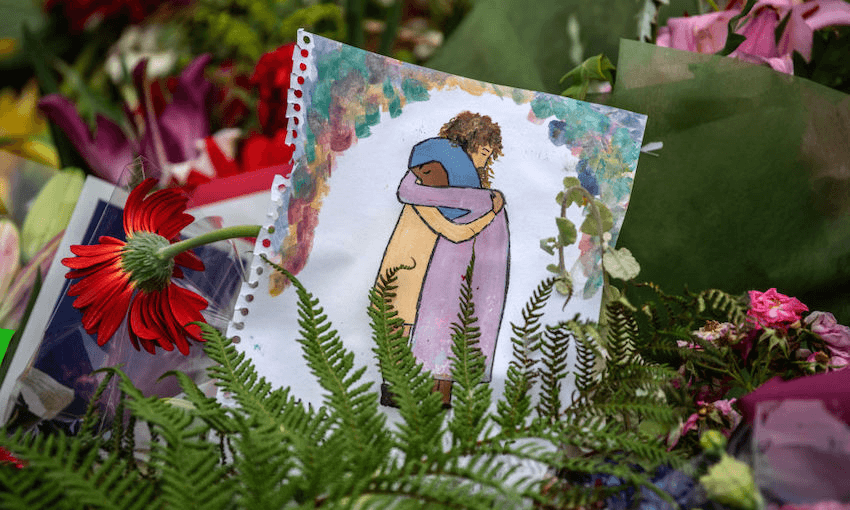The inquiry is of real value, but predetermined terms of reference, a lack of transparency and an inherent conflict of interest limits its potential to deliver the scrutiny and change Aotearoa needs, writes Anjum Rahman, a member of the Commission’s Muslim Community Reference Group.
The Royal Commission of Inquiry into the Terrorist Attacks on Christchurch Mosques was announced before the end of March 2019. Immediately after the attacks, there were many questions being raised publicly as to whether or not these attacks were preventable. Had government agencies failed in their duty to protect the population, and in particular the Muslim community?
We know that the terrorist was able to carefully plan and undertake the attacks without coming to the notice of any authorities. We know there were failings with the gun licensing process, and we know that the threat of alt-right activity had been raised with the government.
Last week, the inquiry presented its report to government. It was an extensive inquiry, and the commissioners looked at 73,500 pages of evidence and submissions, they interviewed and met with 400 people including the prime minister and other past and present ministers of the crown. There were 217 public sectors agencies who were asked to provide information. It is a serious amount of work.
The benefits of a Royal Commission are that it is independent of government and has wide ranging powers. They can hold formal hearings, require information to be provided, and issue summons. Last week, the Royal Commission published its final minute which detailed the suppression orders on information that was provided to the inquiry. As members of the Muslim Community Reference Group, we had been advised the submissions and evidence would be sealed.
We were told, but we weren’t consulted on these matters. The commissioners were required to do this, to some extent, because of section 10 of the Terms of Reference. That section talks about the need to prevent copycat incidents (s 10 (1)) and to protect public safety (s 10 (2)). The interpretation of this section rests with the commissioners.
At the outset of this process in late March and early April 2019, there was a lack of consultation. While the terms of reference into the Royal Commission into Abuse in Care were open for submissions, that was not the case for this inquiry. Rather, the terms of the investigation into government and the public service was set by government and the public service without any open consultation process. This was a significant lack, and has been apparent over the course of the inquiry.
There was a lack of transparency, as all hearings with state agencies and actors were held in private. Their evidence was not able to be contested by the public or by individuals who had engaged directly with them. The reasoning was to ensure members of the public service would be more forthcoming and open with the commissioners. Surely, there was already a moral obligation to be so.
The Royal Commission process has its limitations. This inquiry was not allowed to “determine civil, criminal or disciplinary liability” for find fault (s 6 (1)). Nor was it allowed to investigate the impact of any private sector actors such as media or social media companies. Because of this, we knew that the process would not be able to deliver accountability or justice. Rather, its value is in providing recommendations for systemic and structural change.
There is, then, a gap. The main focus of all who engaged with the inquiry is to ensure that no other terrorist attack ever happens in our country. We want all of the people in our country to be safe. Accountability and justice are crucial parts of achieving that goal. People in positions of power should not be able to act negligently or incompetently without consequence. They certainly shouldn’t be continuing in their positions if they have been found wanting.
The 73,500 pages of evidence and submissions will contain valuable material that is of public interest. We understand the national security implications and the need to restrict classified information. It is not our contention that all of this material be made public. Where there is evidence of wrongdoing, it should be passed on to appropriate channels to ensure civil and criminal processes are able to provide accountability. The victims deserve this, as does the public of Aotearoa.
The report of the Royal Commission will be tabled in parliament on Tuesday. We trust in the diligence of the commissioners. We know the findings and recommendations will be hugely important. It is up to the current government to decide which of those recommendations will be implemented, and how well resourced agencies and actors will be to carry them out.
Ultimately, the power lies with the public and the pressure we put on our government to take this report seriously and implement the recommendations. The risk is this: how much of the public has the time and expertise to engage with a 792 page report, and to assess which recommendations are most important and will have the desired impact?
We cannot be in a position, once again, where it is left to the government and state agencies to decide how public service structures and systems are changed. There is an inherent conflict of interest. Part of the process in the coming weeks is to ensure that there is an effective and independent mechanism by which the public of Aotearoa keeps the government on track, so that the benefits of this $17 million report are not lost.
